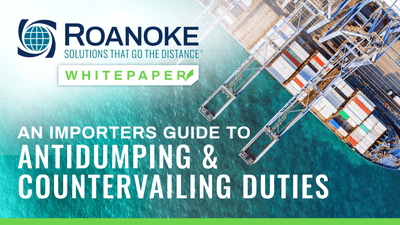September 16, 2025 | Customs Bonds
Do You Really Need an FMC License? A Compliance Starting Point for NVOCCs

For non-vessel-operating common carriers (NVOCCs), compliance with the Federal Maritime Commission (FMC) isn’t optional—it’s the foundation of doing business legally and avoiding steep penalties. During our recent webinar, Avoid Costly FMC Penalties, industry expert Mauricio Larenas of AP Tariffs reminded participants that compliance begins with a simple but critical question: does your business qualify as an NVOCC?
Who Qualifies as an NVOCC?
According to the FMC, any company that offers ocean shipping services is considered an NVOCC. That definition is broad—so broad that even a small storefront advertising “Ship to Colombia for $50” or a Facebook post offering to move boxes overseas could qualify. Once you advertise international ocean shipping, you’ve crossed the threshold and need to comply with FMC requirements.
The FMC Licensing Process
If your company meets the definition, you must apply for an FMC license. The application is not a quick form—it’s a multi-step process requiring documentation, references, and proof of experience:
- A qualified individual with at least three years of U.S. ocean shipping experience.
- Three industry references to validate expertise.
- A completed application with extensive details about your company.
- Review and approval by the FMC, which can take several months.
Once preliminarily approved, companies must also secure:
- An FMC Bond – A financial guarantee that protects shippers and carriers, not the NVOCC itself.
- A Tariff Filing – A publicly accessible online document that outlines how you operate, including your rates and rules of service. Think of it as your company’s “menu” for shipping services.
The Often Overlooked Step: Maintenance
Too many companies rush through the licensing process and then forget to maintain compliance. As Mauricio cautioned, “Day one is just showing you have something in place. But once you start operating, you must keep your tariffs up to date. Regulations change, rates change—and your tariff must reflect those changes”.
Why It Matters
Operating without the proper license and filings can expose your business to severe FMC penalties, audits, and loss of credibility in the marketplace. More importantly, it creates risk for your clients—the very shippers who rely on you for smooth, compliant ocean transport.
Building on Compliance with the Right Support
While licensing may feel like a regulatory hurdle, it’s also the entry point to credibility and growth as an NVOCC. Partnering with experts like Mauricio Larenas, and working with trusted providers of surety bonds and liability insurance, ensures your business is protected as it expands.
At Roanoke, we support NVOCCs with the liability and surety products that complement FMC compliance, helping you safeguard your business and your clients.
Want to ensure your compliance foundation is solid? Contact Roanoke to discuss liability protection and bond solutions for NVOCCs.
Disclaimer: This information is provided as a public service and for discussion of the subject in general. It is not to be construed as legal advice. Readers are urged to seek professional or legal guidance from appropriate parties on all matters mentioned herein.













